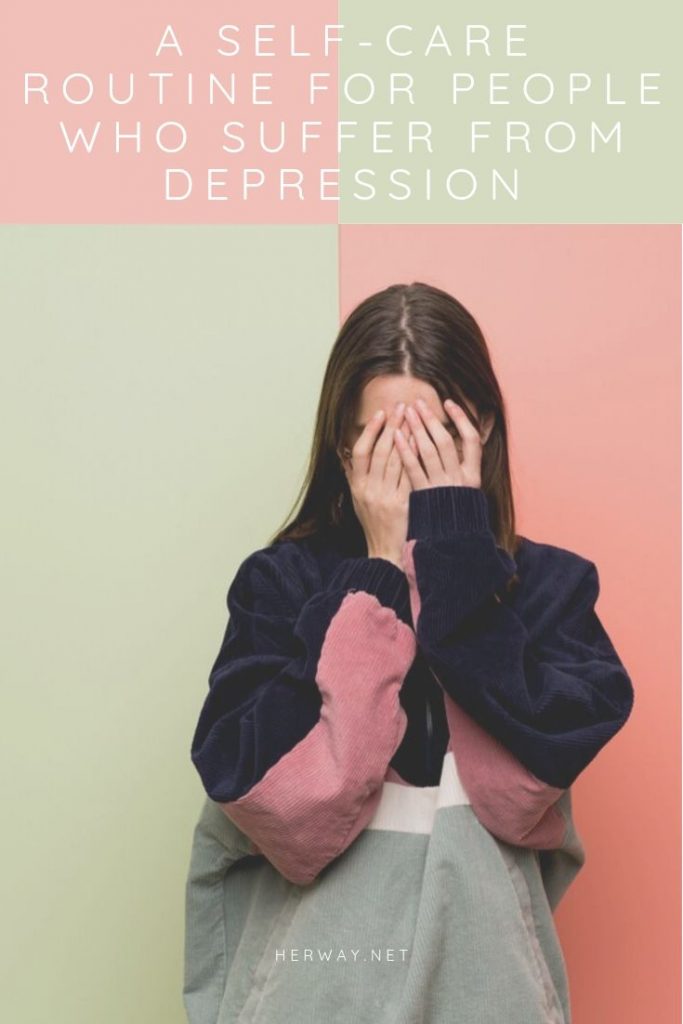A Self-Care Routine For People Who Suffer From Depression
People who suffer from depression encounter difficulties in their life from day to day.
Without even realising it, I’ve managed to make my depression less powerful with little self-care tips I try to do on a daily basis!
These little, daily rituals can give you insight into a whole new world which is not as bad as you might have thought until now.
After many days of being bed-bound, I thought that my world was falling apart and that there were no reasons to live anymore.
But, I got a call from a friend asking me if I was doing fine and I just burst out in tears, not knowing how to respond.
She told me that she will be there for me, so I needed to talk to her, so she would know what’s wrong. I stayed still, sobbing. That was the day I decided to put these little rituals into my everyday life.
1. Talk to yourself
I know you might be thinking that it will make you look crazy, but it’s the easiest way to become more aware of your feelings.
Every time you start to feel your depression taking over your body, you can ask yourself a series of questions like: Why do I feel this way?
What triggered it? When was the first time I felt like this? These questions can make you become more conscious of your mind and emotions.
But you need to verbalize it, speak to yourself out loud. You can even look into a mirror while doing this. Be your own little therapist.
2. Write it all down
After you’ve had that conversation with yourself, make a list. Make a list of all the feelings you’re feeling, what triggered them and what to do to change the way you’re feeling.
You can do this also by writing down all the things you are grateful for, simply to improve mindfulness and also to remember all the wonderful things in our lives which we tend to forget about.
3. Listen to your body
You’ve heard it all before: go out and do something! It is important to know that your body is telling you what to do.
If you’re not feeling good enough to stand up and go for a run, then don’t force yourself.
You’re already out of energy—running won’t make it better. If you need a day or two to rest, then stay inside and do the first two steps.
You will see that you will feel much better and you will have the energy and courage to go out and do some awesome activities, socialise etc.
4. Change the way you look at yourself
Get butt naked and stand in front of a mirror! You don’t like what you see? Why? Is it really that bad? No. Of course not.
Why do you care that your legs are ‘too thin’ or if you have a ‘big belly’?
It’s you in all of your majestic beauty! There’s no one like you in this world and that’s OK.
That’s more than OK—that’s wonderful. You need to love and appreciate your body because it’s yours.
5. Do something creative
Paint. Write. Cook. Do something that will relax you and make you feel like time has stopped.
It won’t be easy at first to make yourself dedicate 30 minutes per day to something like that, but it will make you more relaxed and at ease.
If you’re painting, try using happier colors.
Pick out books to read which have a happy ending. All these little things will remind you how wonderful life can be.


6. Be mindful
When you get a bit of energy, you tend to run off to do all the things you didn’t do during the time you were too weak to actually get out of bed.
You go and multitask your butt off and all you get is, again, lack of energy and losing the will to live because life looks so hard at times.
Instead, focus on only one thing at a time and be mindful about it. If you’re eating, be aware of the taste in your mouth.
Also, take the time to look at the sky. Acknowledge the wonderful world. It is so worthwhile to get out of bed.
7. Talk about it
As hard as it may seem—taking in consideration the fact that you don’t like to talk about it—talk about it anyway.
Talk with your friends and family, your coworkers, your teachers. Just talk. It will be much easier to cope with all of it if you know that someone is there to help you.
It’s easy to forget how important we are to people when we are stuck in our own delusions of how we don’t matter.
8. Buy a plant or two
Might sound ridiculous, but do it. Buy a couple of plants and surround yourself with greens. It’s been proven that the color green has a calming effect on people as it returns us to our roots, to the forest.
It’s also a way to see your own recovery. If you’re feeling better, you will stand up every morning to water your plants, but if you’re not feeling well, you will forget about your plant and you will be watching it die.
That terrifying scenery might trigger you to take care of yourself more.
9. Leave notes to yourself
Take a jar and put positive affirmations in it. Write them down on colorful paper and every time you’re not feeling too good, take one out of the jar.
It will make you remember why you made it in the first place and it will give you just enough strength to put a smile on your face.
10. Therapy
If you’re not in therapy, get into therapy. If you’re afraid of what people might think of you, just forget about them and focus on what you want.
You want a professional to be there for you to give you just the right advice.


Source: https://numerologybox.com
Category: Depression





